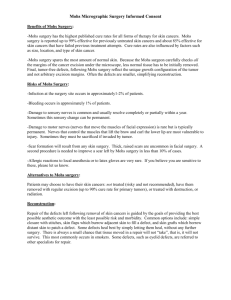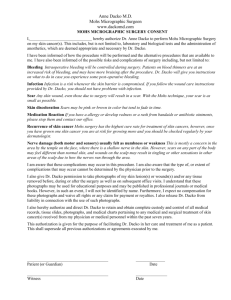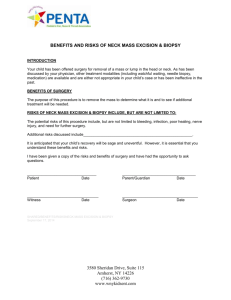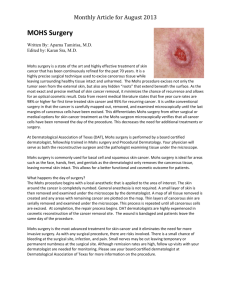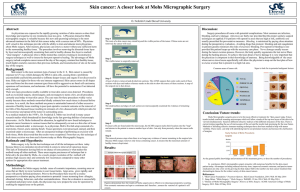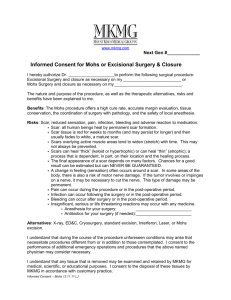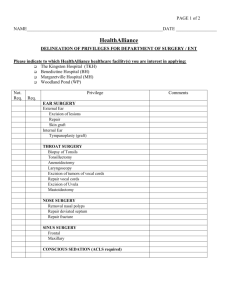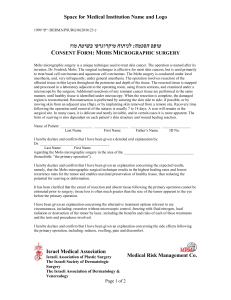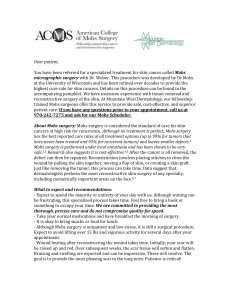Abstract - Cochrane Skin
advertisement
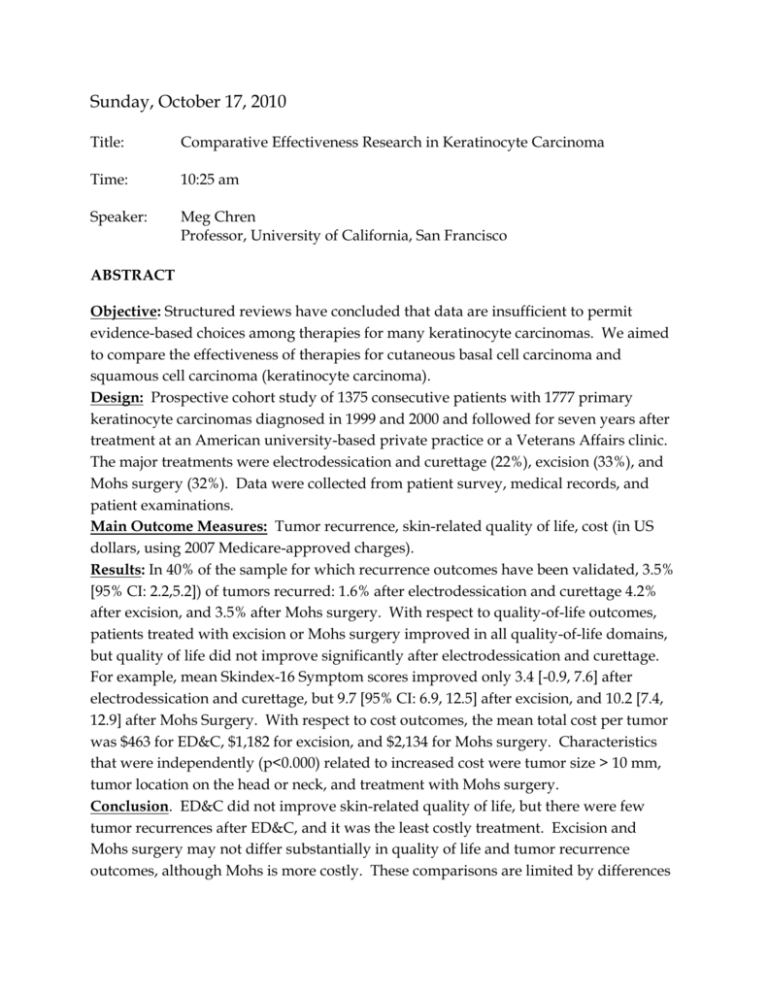
Sunday, October 17, 2010 Title: Comparative Effectiveness Research in Keratinocyte Carcinoma Time: 10:25 am Speaker: Meg Chren Professor, University of California, San Francisco ABSTRACT Objective: Structured reviews have concluded that data are insufficient to permit evidence-based choices among therapies for many keratinocyte carcinomas. We aimed to compare the effectiveness of therapies for cutaneous basal cell carcinoma and squamous cell carcinoma (keratinocyte carcinoma). Design: Prospective cohort study of 1375 consecutive patients with 1777 primary keratinocyte carcinomas diagnosed in 1999 and 2000 and followed for seven years after treatment at an American university-based private practice or a Veterans Affairs clinic. The major treatments were electrodessication and curettage (22%), excision (33%), and Mohs surgery (32%). Data were collected from patient survey, medical records, and patient examinations. Main Outcome Measures: Tumor recurrence, skin-related quality of life, cost (in US dollars, using 2007 Medicare-approved charges). Results: In 40% of the sample for which recurrence outcomes have been validated, 3.5% [95% CI: 2.2,5.2]) of tumors recurred: 1.6% after electrodessication and curettage 4.2% after excision, and 3.5% after Mohs surgery. With respect to quality-of-life outcomes, patients treated with excision or Mohs surgery improved in all quality-of-life domains, but quality of life did not improve significantly after electrodessication and curettage. For example, mean Skindex-16 Symptom scores improved only 3.4 [-0.9, 7.6] after electrodessication and curettage, but 9.7 [95% CI: 6.9, 12.5] after excision, and 10.2 [7.4, 12.9] after Mohs Surgery. With respect to cost outcomes, the mean total cost per tumor was $463 for ED&C, $1,182 for excision, and $2,134 for Mohs surgery. Characteristics that were independently (p<0.000) related to increased cost were tumor size > 10 mm, tumor location on the head or neck, and treatment with Mohs surgery. Conclusion. ED&C did not improve skin-related quality of life, but there were few tumor recurrences after ED&C, and it was the least costly treatment. Excision and Mohs surgery may not differ substantially in quality of life and tumor recurrence outcomes, although Mohs is more costly. These comparisons are limited by differences in patients and tumors in the treatment groups, and provide a basis for targeted controlled trials of therapies for these common malignancies.

